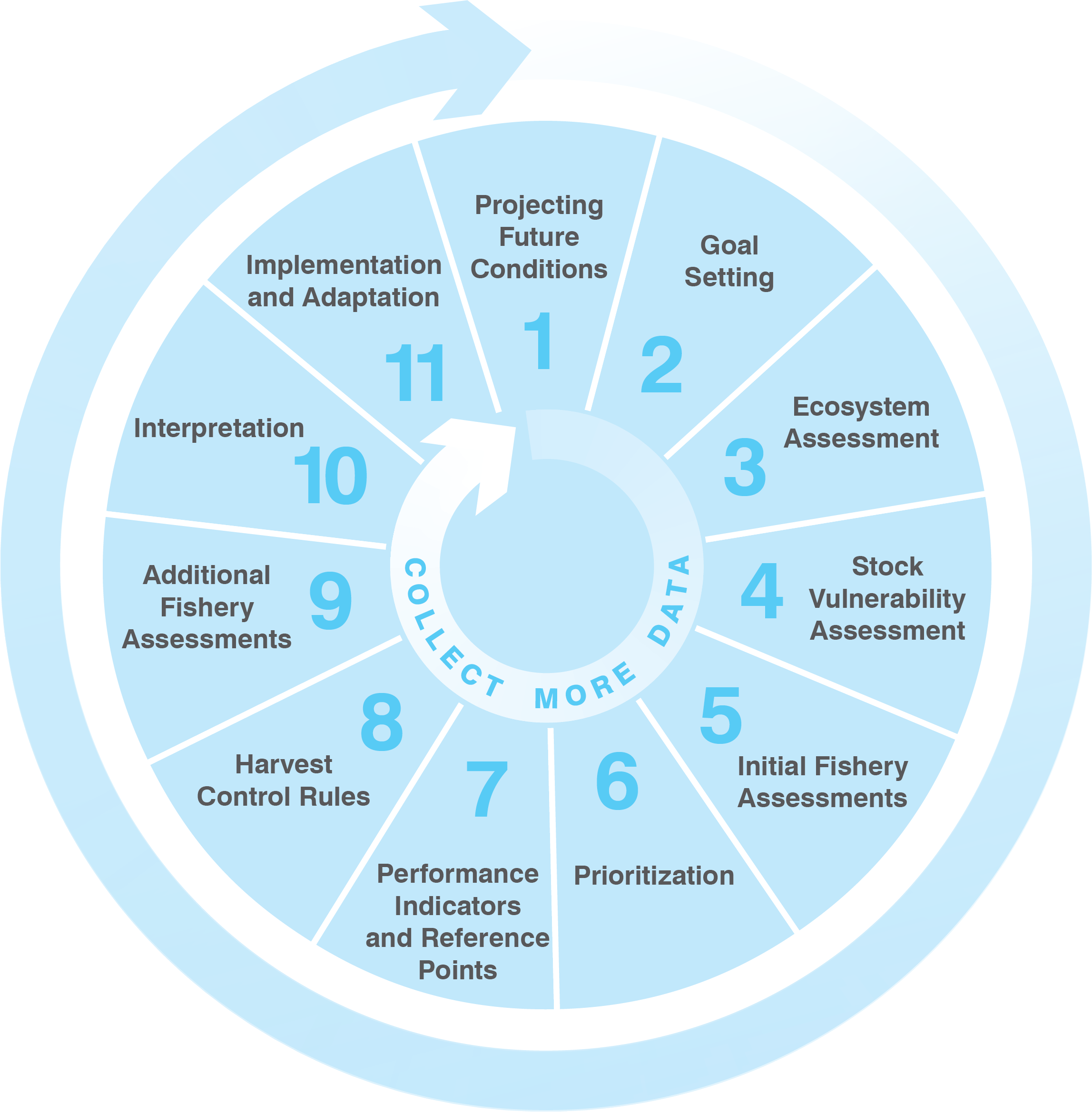
Management decisions in data- and resource-limited situations about how to adjust fishing pressure, and by how much, can be the most difficult assignment managers must undertake. Too often, fisheries are not managed at all or management measures are based on standard practices without an adequate scientific basis. These challenges are even more pronounced with regard to climate change, which introduces additional uncertainty and variability into a system, and about which very little is often known at a local scale. This lack of science-based and climate-informed management measures creates a high risk of overfishing and the loss of economic and social benefits from fisheries. Fortunately, the science of data-limited assessment is evolving, and the number of available tools is increasing over time. FISHE pulls from leading research on adaptive, data-limited methods to help fishermen, marine scientists and managers conduct quick and inexpensive stock, ecosystem, and climate impact assessments and make fishery management decisions based on science, even when data and capacity are limited.
The eleven-step FISHE process starts with projecting likely future fishery conditions, given the expected impacts of climate change. The results of this step are then used to inform goal setting, ecosystem health assessments, and prioritization of target species based on vulnerability and assessments of whether the stock appears to be depleted or not. Next, FISHE helps stakeholders select appropriate indicators of fishery sustainability that can be quantified using the available data and data-limited analytical tools, identify reference points for each indicator, engage in a participatory process to determine harvest control rules to ensure the appropriate response to assessment results will be enacted. Finally, FISHE users select and apply data-limited stock assessments, carefully interpreting the outputs and evaluate the resulting indicator values against the pre-selected reference points, interpret the results together, and choose management actions aimed at achieving the stated goals. Guidance is provided to facilitate progress towards an ecosystem approach to fisheries management in both single-target and multi-species fisheries. The process is repeated regularly to update the status of the fishery and to help managers and stakeholders decide when management changes are necessary and whether there are new and better sources of data available to apply more robust assessment methods. Thus, FISHE constitutes an adaptive management framework that can help to confer sustainability and climate resilience to support either precautionary or data-driven science-based management. It also helps fisheries improve their data collection and scientific assessment systems so that they can increase the effectiveness of their management regimes.
In addition to being useful in data- and resource-limited situations, managing adaptively is important due to the uncertain and variable nature of fisheries, which is only being compounded by climate-change. Fisheries are highly dynamic systems involving fluctuating environmental conditions, difficult-to-predict fishing behaviors, variable resource productivity and changing market and economic conditions. And climate change effects will influence all of these factors. As a result, fisheries management must be designed to be flexible and adaptable enough to respond to changing conditions. Developing a robust adaptive management framework provides managers with the means to re-evaluate and adjust decisions periodically based on observations about fisheries conditions and from learning from the outcomes from previous management decisions. Adaptive learning and management are essential in moving towards successful, climate-resilient management.
For some fisheries, stakeholders and managers may determine that higher investment in data collection and assessment methodologies is necessary to enhance fishery outcomes. For other fisheries, data-limited assessment and adaptive management methods may suffice. In either case, data collection systems should be designed to continuously improve the quality and quantity of data available for assessment and management, within the cost and capacity constraints of the fishery. Careful design of data collection systems (see Collect More Data) to match assessment methods and management needs is important; many data collection systems have required much effort and cost but have not resulted in useful data because the data do not match the needs of the analytical methods or cannot be used to evaluate the most important indicators of fishery performance against stakeholder goals. Closely tying data collection investments to improvements in valued outputs will also enhance fishermen’s and managers’ confidence in the process.
Are you ready to begin? Get started by downloading the Workbook and completing the Pre-assessment Worksheets to characterize your fishery and determine what data are available. The Workbook Table of Contents and Guidance can be used to navigate through the materials you’ve downloaded, which correspond to Steps 1-11 of FISHE. More information on each step can be found in the left-hand panel of this website.

